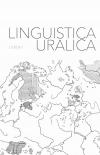Удмуртские слова в коми-зырянском языке?
Udmurt Words in the Komi-Zyrian Language?
Author(s): Galina FedyunevaSubject(s): Language studies, Finno-Ugrian studies
Published by: Teaduste Akadeemia Kirjastus
Keywords: Komi language; Udmurt language; migratory words
Summary/Abstract: Three Komi-Zyrian words having direct equivalents in the Udmurt language are considered. They are represented, basically, in northwestern dialects, which are connected with the southern region by a variety of phonetic and morphological isoglosses, as well as by a share of common vocabulary. On this basis and taking into account archeological data the idea on migratory relations of the northern and northwest Komi with the population of the south Komi region and the Vyatka-Kama basin has been repeatedly expressed. The phonetic and semantic affinity of the considered Komi words with the Udmurt equivalents also suggests their migratory origin. 1. The word aźla, recorded in the Vashka idiom of the Udora dialect, has survived in two stable expressions: aźla viǯ́e̮ pi̮re̮m ’spring fasting previous to Petrovsky fasting’ and aźla i̮čkan lun ’Trinity’. Its meaning becomes clear only in comparison with the Udmurt word aźlo ’at first, before, to’ (< ’forward’). The Udmurt form proper of the Komi word with the fricative ź in place of the common Permian palatal affricate and the initial sound a attracts attention. This form has developed in the Udmurt language from the common Permian stem *o̭ǯ́ ’before, a forward part’ (< FP *ońća) > ancient Komi *uo̭ǯ́ > Komi woǯ́ (dial. Udora ve̮ǯ́), Yaźva Komi u·ǯ́ | Udm aź. 2. In the Udora dialect of the Komi-Zyrian language two adverbial forms be̮ra and be̮rla ’again’ are represented in close meanings, while the former completely corresponds to the Komi-Permyak adverb be̮rа ’again, still’. All these adverbs go back to the common Permian stem *bɛr > Komi *be̮r, Udm. *ber ’back, a back part’. However, the suffix -la in be̮rla draws it closer to the Udmurt berlo ’later, after’ (< ’back’). 3. In a number of idioms of the northeastern region, including in Udora, there occurs the de-etymologized word petle̮, petle ’enough, suffice’. It can be compared with the Udmurt pedlo ’out, outside’, probably, formed from the common Permian stem *pe̮t- ’to leave’ by means of the same Udmurt suffix of adverbs -lo. Adaptation of the final o → e̮, e is natural for the Komi language, while the semantic development ’outside, out of smth’ → ’too much, over’ → ’enough, suffice’ is also typologically justified.
Journal: Linguistica Uralica
- Issue Year: LII/2016
- Issue No: 3
- Page Range: 204-208
- Page Count: 5
- Language: Russian

